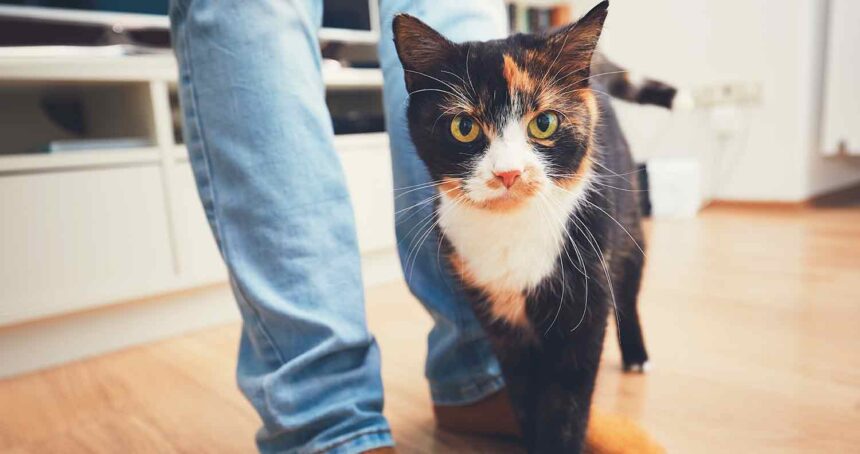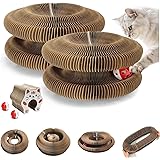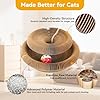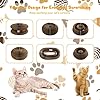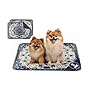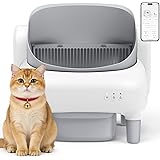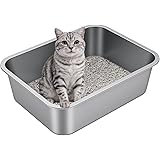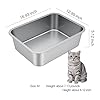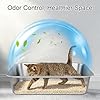Cats are fascinating creatures with their own ways of communicating and expressing themselves. If your cat is constantly meowing and rubbing against objects around the house, it might leave you wondering what’s going on. Let’s break down the common reasons behind this behavior and explore some practical ways to address it.
1. Attention-Seeking Behavior
What It Means
One of the most common reasons for frequent meowing is that your cat is looking for attention. Cats are social animals and they often use meowing to get noticed. They might want you to play with them, pet them, or simply hang out together.
Signs of Attention-Seeking Behavior
- Persistent Meowing: If your cat keeps meowing, especially when you’re around, it’s a sign they want something from you.
- Rubbing Against You: Cats rub against you to mark their scent and signal that they need your attention.
- Following You Around: If your cat trails you from room to room, it’s likely they’re looking for your company.
What You Can Do
- Play with Your Cat: Spend time each day engaging in interactive play. Toys that mimic hunting can keep them entertained and satisfied.
- Give Quality Attention: Ensure you’re giving your cat regular affection and interaction.
- Use Puzzle Toys: These can keep your cat mentally stimulated and help reduce their need for constant attention.
2. Hunger or Thirst
What It Means
Your cat might meow and rub against things if they’re hungry or thirsty. Cats are creatures of habit and they often vocalize when they’re ready for their next meal or if their water bowl needs refilling.
Signs of Hunger or Thirst
- Meowing Around Meal Times: If your cat starts meowing around their usual feeding times, they’re probably signaling that they’re hungry.
- Rubbing Against Food and Water Bowls: Cats may rub against their dishes to get your attention.
- Increased Activity in the Kitchen: If your cat is more active or vocal around meal prep areas, they might be trying to tell you they’re hungry.
What You Can Do
- Stick to a Feeding Schedule: Feed your cat at the same times each day to keep a consistent routine.
- Check Food and Water: Make sure their bowls are always full and clean.
- Consider Automatic Feeders: These can help manage feeding times, especially if you’re not always home.
3. Marking Territory
What It Means
Cats use scent to mark their territory, and rubbing against objects is one way they do this. When they rub against furniture or you, they’re leaving their scent behind to claim their space.
Signs of Territorial Marking
- Rubbing Against Objects: Cats rub against various surfaces to mark their territory.
- Meowing While Rubbing: They might meow while rubbing to reinforce their claim on the area.
- Frequent Marking: If your cat rubs against multiple items, they’re likely marking their territory.
What You Can Do
- Create a Safe Space: Give your cat a special spot or bed that’s just for them.
- Use Scent-Reducing Products: Pheromone diffusers can help create a calm environment and reduce marking behavior.
- Manage Interactions: If you have other pets, supervise their interactions to prevent territorial disputes.
4. Stress or Anxiety
What It Means
Stress and anxiety can lead to increased meowing and rubbing. Changes in their environment, such as moving to a new home or the introduction of new pets, can make your cat feel uneasy.
Signs of Stress or Anxiety
- Increased Meowing: A stressed cat may meow more than usual, often sounding distressed.
- Excessive Rubbing: Rubbing against objects might be a self-soothing behavior.
- Behavior Changes: Look for other signs like hiding, aggression, or changes in eating habits.
What You Can Do
- Provide a Calm Environment: Create a quiet, comfortable space where your cat can retreat when they feel stressed.
- Maintain Routines: Keep feeding, playtime, and other routines consistent to help your cat feel secure.
- Use Calming Products: Consider calming pheromone diffusers or anxiety-reducing treats.
5. Medical Issues
What It Means
Sometimes, meowing and rubbing can indicate that your cat is in pain or discomfort. Cats often hide their pain, so they might use vocalizations and rubbing to express distress.
Signs of Medical Issues
- Persistent Meowing: If your cat’s meowing seems unusual or is accompanied by distress, it could be a health problem.
- Unusual Rubbing: Excessive rubbing, especially if it seems painful, could indicate discomfort.
- Behavior Changes: Watch for other symptoms like changes in appetite, litter box habits, or lethargy.
What You Can Do
- Observe Closely: Pay attention to any additional signs of illness or behavior changes.
- Consult a Vet: If you’re concerned about your cat’s health, it’s best to seek veterinary advice to identify and treat any underlying issues.
- Monitor Symptoms: Keep track of any new symptoms or changes and discuss them with your vet.
6. Affection and Bonding
What It Means
Meowing and rubbing can also be signs of affection. Cats often use these behaviors to bond with their owners and show their love.
Signs of Affection
- Gentle Meowing: Soft, consistent meowing can indicate that your cat is expressing affection.
- Affectionate Rubbing: Rubbing against you in a relaxed manner is a sign of a strong bond.
- Purring and Kneading: These behaviors are often associated with contentment and affection.
What You Can Do
- Enjoy the Bonding Time: Embrace these moments and reciprocate with petting and attention.
- Provide Comfort: Offer a cozy spot where your cat can feel safe and loved.
- Encourage Positive Interactions: Continue to engage with your cat to strengthen your relationship.
7. Exploring Their Environment
What It Means
Cats are naturally curious and often meow and rub against objects as they explore their surroundings. This behavior helps them understand and map out their environment.
Signs of Exploration
- Investigative Meowing: Your cat might meow while exploring new or unfamiliar areas.
- Rubbing Against Objects: Rubbing helps them gather information about their surroundings.
- Increased Activity: More meowing and rubbing might occur when they’re investigating changes or new items.
What You Can Do
- Provide Safe Exploration Opportunities: Allow your cat to explore different areas safely.
- Introduce New Items Gradually: Make changes in the home gradually to help your cat adjust.
- Use Interactive Toys: Enrich their environment with toys that stimulate their curiosity.
Understanding why your cat is meowing and rubbing against everything can help you meet their needs and ensure their well-being. Each cat is unique, so paying close attention to their behavior and context will guide you in providing the best care.


